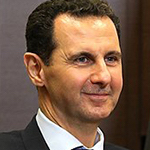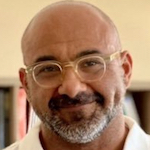 Africa has a population of more than 960M people whose gross national income has risen by 35% since 2010. During those same years, as the world reeled from a global economic crisis, the economies of sub-Saharan Africa ballooned, as did the region's youth. By 2030 the number of people reaching working age on the continent will exceed that in the rest of the world combined.
Africa has a population of more than 960M people whose gross national income has risen by 35% since 2010. During those same years, as the world reeled from a global economic crisis, the economies of sub-Saharan Africa ballooned, as did the region's youth. By 2030 the number of people reaching working age on the continent will exceed that in the rest of the world combined.
It's a major understatement to say that US communications firms should have an Africa strategy in place. Yet despite the scale of opportunity, global communications firms have yet to establish a powerful base in the region. Are global agencies missing a huge opportunity or is Africa failing to make the case for communications companies?
One of the striking things about the state of the PR business in Africa is the way in which global firms have been attempting – and failing – to build a presence there. Spend half an hour on Google and you can see that some global firms have entered the market through acquisition and regional affiliates. Such a hands-off approach may be sensible in a region such as the Middle East where the populations of the Gulf Cooperation Council countries of Bahrain, Kuwait, Qatar, Saudi Arabia and the UAE total 50 million. Multiply that by 20 for Africa, whose population is approaching the 1B mark, it’s hard to understand why global firms are not acting more proactively.
Affiliate networks aren’t of course a bad thing. They provide foreign agencies with a geographic footprint and immediate scale. This is a cautious, cost-effective way of entering a market, but there is a downside. Affiliations are loose relationships and foreign agencies have little or no control over values, quality, ethics or managerial style. These networks also fail to give global networks a real in-road to the local market, which means that the affiliate approach is rarely a long-term or sustainable investment. Affiliate networks are a modest attempt at having a presence and regional clients know it.
Our experience of building a pan-regional consultancy from the ground up has shown us that there are two particularly important issues to consider: cultural relevance and legacy. The new Africa is one that is confident, it is a region that has shrugged off decades of colonial rule and emerged from a myriad of tribal, political and religious conflicts. In laymen’s terms, this is a complex jigsaw of cultures and countries that have learned not to take it lying down from foreign powers. While small local agencies might be happy to partner with recognized global names, the agencies that do best are those that have grown up in Africa or are on the ground, working hand-in-hand with local stakeholders.
Western practitioners are incredibly welcome because they bring expertise – but they need to be on the ground and for the long-haul. Secretary of State John Kerry hit the nail on the head during a recent trip to Africa when he said that, “I think America can be central in moving Africa into the next stage of growth and integrating it in to the world economy in a way in which it’s benefitting the people of Africa and is not just a source of natural resources.” What Kerry is talking about is sustainability and authenticity. US PR agencies have a huge amount to offer and to gain – but it is not there for the taking: it needs to be earned and it needs to leave a lasting legacy.
American companies moving in Africa must develop strategies that actually offer value to Africa, to its people and its economy. So, US PR firms need to develop a granular strategy, putting people on the ground across the region who are committed to Africa. And they need to be honest about the nature of the challenge: can a person who can operate in New York, London and Johannesburg also operate comfortably in Ghana, Angola or Mozambique? Are they prepared to become an ex-pat in a truly non-western environment, work hard to gain the trust of the local community, successfully hire bright local workers and get the best out of them? And do they know how important it is to build a brand that is trusted by the local community, so that when they leave the brand can stand alone and continue to prosper?
Gaining credibility as a communications company that truly understands African challenges is perhaps the greatest obstacle; but it is worth investing time and money in getting there. It takes time to build reputations in any part of the world but in a region with close to 3,000 languages, multiple currencies and a complex political matrix, Africa is a particularly steep curve. However by investing the time and money in putting the right people on the ground – whether it is to launch a new office or a senior consultant to work with an acquired agency – US PR firms stand a chance of gaining a meaningful and lasting foothold in the world’s fastest growing region.
* * *
Mitchell Prather is managing director of Djembe Communications, which has offices in Lagos, Luanda, Maputo, Dubai, Zurich, London and New York.


 Edelman is providing communications support to Panama’s Ministry of Commerce and Industries under an agreement capped at $97,100 per month.
Edelman is providing communications support to Panama’s Ministry of Commerce and Industries under an agreement capped at $97,100 per month. Ballard Partners has recruited State Department veteran Matt Bryza as a senior policy advisor.
Ballard Partners has recruited State Department veteran Matt Bryza as a senior policy advisor. Teneo has extended its contract with the Salama Bint Hamdan Al Nahyan Foundation for an additional four months to July 31, adding another $1.8M in fees to the New York firm’s coffers.
Teneo has extended its contract with the Salama Bint Hamdan Al Nahyan Foundation for an additional four months to July 31, adding another $1.8M in fees to the New York firm’s coffers. The Syrian Kurdish militia recruits Jim Dornan Strategies to press Congress for continued support in their battle against ISIS and Syrian president Bashar Assad.
The Syrian Kurdish militia recruits Jim Dornan Strategies to press Congress for continued support in their battle against ISIS and Syrian president Bashar Assad. The Government of Hungary has hired Strategic Improvisation Inc. to generate positive media coverage and combat negative press coverage of the Central European country. (6 reader comments)
The Government of Hungary has hired Strategic Improvisation Inc. to generate positive media coverage and combat negative press coverage of the Central European country. (6 reader comments)


 Have a comment? Send it to
Have a comment? Send it to 
No comments have been submitted for this story yet.